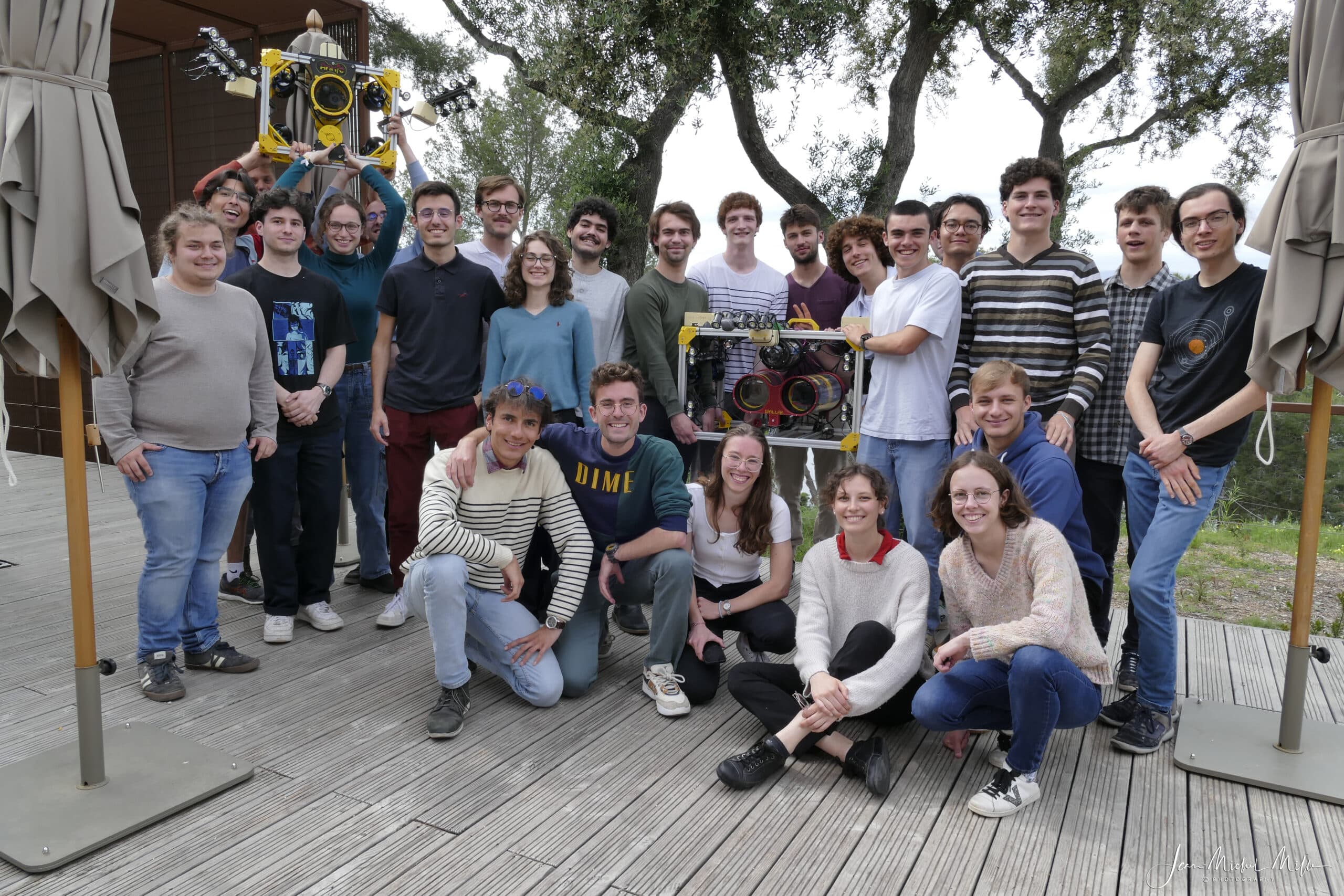Julie Boyer, student engineer, finalist in the “Monaco Ocean Protection Challenge” 2024 innovation competition
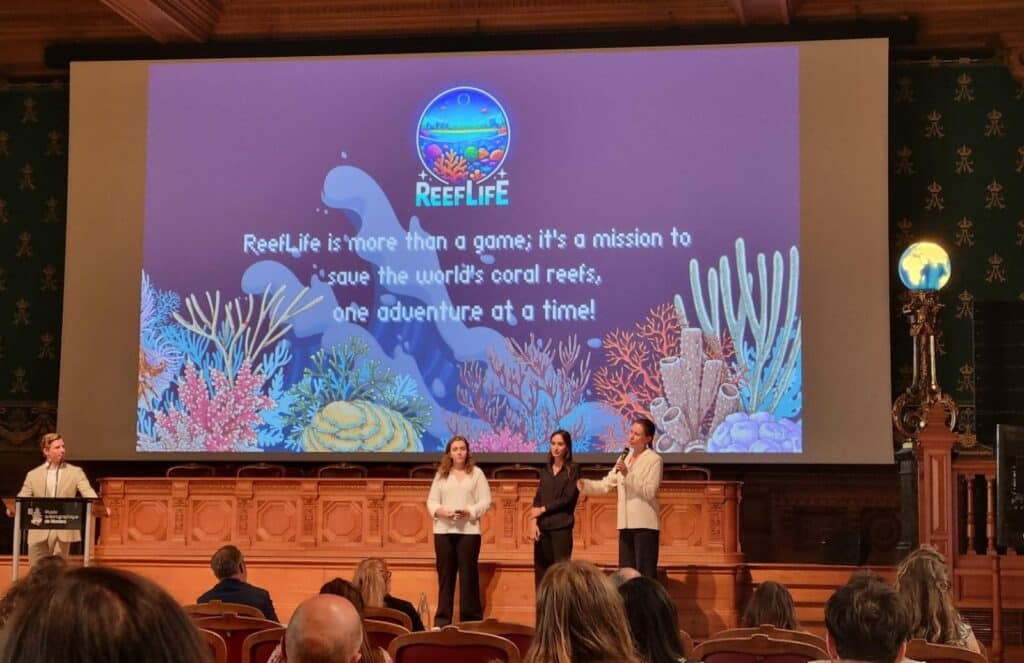

Mines Paris and the International University of Monaco have collaborated to create and promote the ReefLife project, an educational and scientific video game dedicated to the knowledge and preservation of coral reefs worldwide.
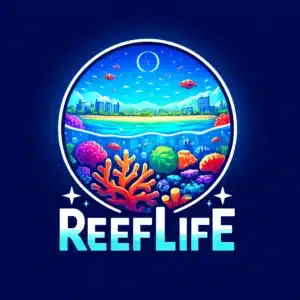
Although coral reefs cover less than 0.2% of the oceans, they play a crucial role in biodiversity, sheltering over 25% of marine species. They also protect coastlines by absorbing wave energy, reducing erosion and storm damage. For many developing countries, these reefs are vital to the food supply, providing up to 25% of the fish caught. Economically, they generate billions of dollars each year through fishing, coastal protection and tourism, and have considerable medical potential for new pharmaceutical discoveries.
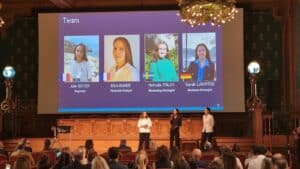
On June 19 in Monaco, Julie Boyer, Nathalie Falck, Elisa Meshchersky Krupensky Buner and Sarah Lakatos presented their project at the Monaco Ocean Protection Challenge final.
The game, championed by Julie Boyer, Nathalie Falck, Elisa Meshchersky Krupensky Buner and Sarah Lakatos (from the International University of Monaco), is called ReefLife. The concept, imagined as a “SimCity of the Ocean”, will combine immersive gaming experiences with educational content focused on coral reef preservation. Players will manage virtual coral reef ecosystems and observe how different actions affect their health and diversity, including elements of anthropogenic development and resource management.
By playing ReefLife, users will be encouraged to adopt sustainable practices, such as reducing plastic use and supporting sustainable seafood, and to participate in local beach clean-up or reef restoration initiatives. Part of the game’s revenues will fund real-life coral reef conservation projects, including coral restoration, research and protection.
Julie Boyer
ReefLife will foster a sense of community and responsibility among its players. Community challenges and citizen science projects will encourage users to become actively involved in conservation efforts. In partnership with scientific institutions, the game will collect valuable data on user behaviors and attitudes towards conservation, improving global awareness and conservation strategies.
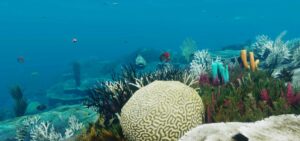
Image from the ReefLife video game project
ReefLife aims to become a benchmark in environmental education, combining fun with active learning. By integrating scientific research missions and real-life environmental challenges, the game will educate and inspire concrete action in favor of coral reef conservation. In the long term, the aim is to extend ReefLife’s impact on a global scale, reaching millions of users and positively influencing their behavior towards ocean preservation. Thanks to its immersive, interactive approach, ReefLife intends to transform education about coral reefs and promote a global commitment to their protection.
Participation in the MOPC led to the development of a business plan, a 7-minute pitch and a one-minute promotional video. Following this participation, the ReefLife idea was also submitted to the “Trophées de l’Océan” innovation competition run by Banque Populaire de l’Ouest, which will publish its awards in September 2024.
If the ReefLife project goes ahead, it will aim to see the light of day in June 2026. The end of 2024 and the year 2025 should be dedicated to the search for funding, with the following actions:
After taking the first-year “Ocean” “Métiers de l’ingénieur généraliste” (MIG) course, taught on the Pierre Laffitte campus in Sophia Antipolis as part of the “Mines Paris pour l’Océan” educational initiative, Julie Boyer will be joining the Centre de Recherche Insulaire (CRIOBE), an EPHE / PSL laboratory of excellence, from mid-July, for a two-month internship. She will be studying the contribution of satellite imagery to the detection and monitoring of coral reef bleaching in French Polynesia.
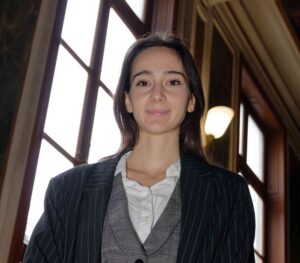
“In September 2023, after two years of preparatory classes, I returned to Mines de Paris to follow the Civil Engineer cycle.
As this course places great importance on immersive field experiences and project-based teaching, my first year was punctuated by some very enriching experiences. For example, I took part in Entrepreneurship Week to learn about new aspects of the economic environment, proposing a project on the subject of education and, in particular, on an issue close to my heart: guidance for high school students. I was also introduced to machine learning through a 3-week project on the detection of bleached coral using satellite images. I’ll be doing a two-month internship at CRIOBE (Centre de Recherches Insulaires et Observatoire de l’Environnement) to extend this project.
On the other hand, as treasurer of the Mines de Paris Junior Enterprise (JuMP), I’d like to deepen my knowledge of economics in my second year, which is why I chose the econometrics term.”
Since 2022, Mines Paris – PSL has been offering an educational program dedicated to ocean preservation, aimed at enriching understanding of the challenges of blue engineering, the technological component of the blue economy. This program enables future engineers to confront major contemporary challenges. Over the three years of their Civil Engineering Cycle, students immerse themselves in specific themes for a few weeks at a time.
In the first year, for example, they studied the detection of microplastics in the Mediterranean using satellite images. This year, they focused on detecting coral reef bleaching in French Polynesia.
In the second year, training focuses for three months on data science and Artificial Intelligence. In 2024, students explored how acoustics can help understand the hunting behavior of dolphins, and worked on the principle of predictive maintenance using IoT (Internet of Things) data from sensors.
In addition, the Underwater 2024 engineering project involved the design and development of two underwater robots remotely operated from the surface, equipped with a payload to acquire images for the reconstruction of 2D and 3D scenes.
